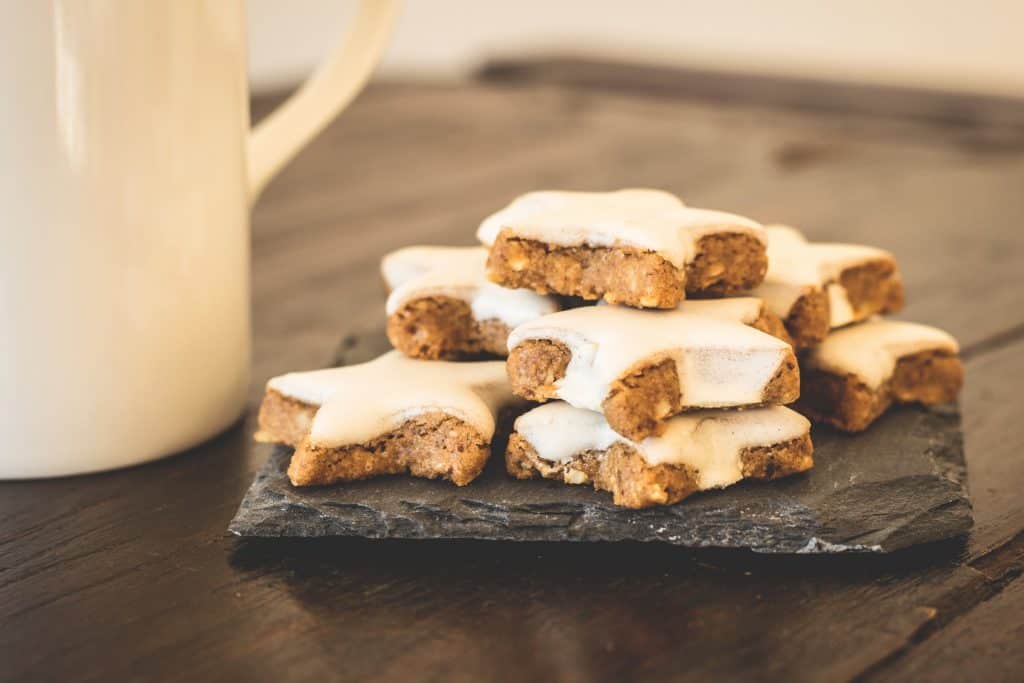It can be very difficult to manage chronic stress and/or anxiety (chronic worry/concern) on a day-to-day basis, let alone at Christmas. Christmas can be a busy, challenging, stressful and exhausting time, even for those who are not battling with a mental health illness.
Christmas can elevate feelings of stress and anxiety for a wide variety of reasons, such as:
- a hectic social schedule (such as events with work, friends and family)
- the significant amount of effort required to host large events
- high expectations of an ‘ideal Christmas’
- the risk of family conflict (due to a difference of opinions, for example)
- socialising with people whom you haven’t seen for some time/do not know particularly well (e.g. extended family)
- loneliness and/or grief, due to a relationship breakdown or loss of a loved one
- isolation and sadness, due to family (such as children or parents) and friends being far away
- long days at work, to complete projects before the holiday period begins
- financial pressures (such as costs associated with gifts and Christmas meals)
- pressure around completing Christmas shopping in enough time
- having little time to relax and recoup your energy
- consuming excessive amounts of food and/or alcohol
- social media (which can induce comparison, feelings of isolation, etc.), and
- an inability to maintain a regular routine.
If you find yourself struggling with stress and/or anxiety, there are a number of different strategies and tools you can implement to help you manage your symptoms in the lead up to and during the Christmas period. Let’s take a look at some of these things now.
Tips for Managing Stress and Anxiety During the Christmas Period
Make a List of the Things You Need to Do
Taking some time to write a list of all the things you need (and/or would like) to do over the Christmas period can be really helpful for alleviating stress and anxiety associated with this busy time of year. You might like to include plans regarding:
- travel arrangements
- putting up your Christmas tree
- decorating your home (e.g. hanging lights)
- social events (such as local Christmas Carols, work Christmas functions, Christmas get-togethers with friends and any plans with family/friends for Christmas Day)
- viewing Christmas light displays in your neighbourhood
- Christmas gift shopping
- Christmas food shopping
- gift wrapping
- Christmas meal (such as lunch or dinner) preparation
- setting the table for a Christmas meal
Do your best to prioritise what you need and/or would like to achieve and try first of all to focus on what is essential and go from there. Determine what can be done in advance (such as gift shopping). Remember, you do not need to complete all tasks within a day, take your time as much as you can. Be sure to delegate certain tasks (such as particular elements of a Christmas lunch or dinner) to family/and or friends, in order to reduce the amount of work you need to complete.
Don’t be afraid to say no to requests from others at this time of year (such as coordinating Kris Kringle at work), which may add to your stress and/or anxiety. Prioritise relaxation time, either on your own or with loved ones, and take time to enjoy the things you love about the Christmas season. Taking this all-important down-time will help you to have more energy for the things you need to do (such as prepare a Christmas meal).
Determine the Main Sources of Your Stress and Anxiety During the Christmas Period
What causes one person to feel stressed and anxious at Christmas time may be different to what causes another person to experience these feelings. It may help you to read through your list of the things you need to do in order to determine the main sources of your stress and anxiety at Christmas, and/or consider the list of common stressors at Christmas time, as outlined in the introduction to this article.
By pinpointing the key sources of your stress and/or anxiety at Christmas time, you can work to prepare yourself and reduce any potential stress and anxiety accordingly. For example, if you do not see eye-to-eye with a particular family member on certain topics, it may help to come up with a handful of other topics to talk about before attending the family function, to reduce any unnecessary conflict.
Have Realistic Expectations
At Christmas time, it is important to set realistic expectations, so as to reduce the chances of feeling disappointed, or overly stressed and anxious. For example, having realistic expectations of what you can achieve during the Christmas period is very important. Don’t stretch yourself too far – simplify your plans for Christmas lunch/dinner, for example, or postpone a catch-up with a certain group of friends for the New Year. In many cases, other people are in the same basket and are more than happy to make things easier for all involved. It is especially important not to overwhelm yourself with an unachievable list of things you need/wish to do close to Christmas (e.g. on Christmas Eve and Christmas Day).
Keep in mind too, that when it comes to interpersonal relationships (e.g. siblings), those who argue and disagree throughout the year may very well do so at Christmas time too. Try to have realistic expectations of the people around you, as well as yourself. It can be helpful to have a trick or two up your sleeve, such as deep breathing, for when you feel anxiety coming on as a result of family conflict (or other situation that is not ideal).
Create a Christmas Budget
Before the Christmas period begins, it can be very beneficial to put some time aside to ascertain your Christmas budget. This can save you unnecessary stress and anxiety associated with overspending.
Your Christmas budget may include expenses such as costs associated with social events, gifts, and food/meals. If you like, you might like to put some money aside each week or each month, in order to build up a nest egg for Christmas costs. For example, saving as little as $5 per week for 48 weeks (January through November) can add up to $240.
Reduce Effort and Costs Related to Purchasing Christmas Gifts
If you are someone who comes from a big family and/or has a large circle of good friends, when it comes to buying Christmas gifts, things can add up very quickly, in terms of both cost and effort. Changing the way you gift presents to one another with family and friends can help to reduce the chances of you feeling especially overwhelmed, stressed and anxious, when it comes to gift buying. You might like to consider one or more of the following ideas:
- setting a cost limit per person
- conducting a Kris Kringle arrangement, whereby each family member or friend in a group pulls one name from a container and is responsible for purchasing a gift for that person only
- asking others what they would like as a gift from you for Christmas, as opposed to feeling uncertain about what to buy and wasting unnecessary time searching for an appropriate gift
- gifting your time (e.g. babysitting) or handmade items (such as cookies)
- gifting experiences/vouchers/gift cards (e.g. for your local cinema or the recipient’s favourite café/restaurant)
- compiling a list of the people you wish to buy for, as well as what you intend to purchase for each of them, crossing off items/people on the list as you go
- planning and completing your Christmas shopping as early as you can, and shopping online where applicable, to save you time and peace of mind (where you do need to go in-store, call ahead to check what you are looking for is in stock, and have it put aside for you where possible)
- having a plan of attack if/when you hit the shops
- sending any applicable cards/gifts interstate or overseas in ample time (to ensure they arrive prior to Christmas and to avoid having to spend your time queuing up at your local post office)
Preparation Tips for Christmas Meals
Though hosting and/or attending a Christmas meal with family and/or friends can be loads of fun, it can also be stressful, when it comes to preparing all the different elements of the meal, such as nibbles, main dishes, sides and desserts. You might like to take note of some of the below tips for easing your meal/dish preparation:
- write a list of the food you intend to buy and/prepare, relevant ingredients, and a timetable for Christmas Day/the days leading up to the event so you can refer to it easily (that way you don’t need to remember everything or worry whether all dishes will be completed in time)
- don’t be afraid to buy pre-prepared dishes, such as a Christmas pudding, if it makes your Christmas period more relaxing and enjoyable than preparing certain things yourself
- order applicable food items in advance and purchase relevant ingredients as early as you can (such as non-perishables)
- online food shopping and home delivery with your preferred supermarket can be especially helpful
- keep it simple (keeping your stress and anxiety levels low (i.e. your mental health) is more important than serving up fancy dishes, and keep in mind the people you are sharing your Christmas with are much more important than what you are serving!)
- share the load amongst family and friends (ask each person/couple/family to bring a particular dish, to save you preparing everything yourself)
- prepare (e.g. chop) and cook what you can in advance, to make the celebration more relaxing
Enlist Help from Others Where You Require It
Where you are able to, consider asking a family member or friend, or enlist the services of a professional (such as a cleaner, for example), to help you get through what you need to in the busy Christmas period. This may include help with catering, cleaning or gift-wrapping, for example. Where you are weighing up the costs of a particular service (and can financially afford it), keep in mind how much time and effort a task may take you if you complete it yourself, and whether it is worth your peace of mind doing it yourself when another individual can help.
Tips for Handling Difficult Family Relationships at Christmas Time
In most families, there is a person (or two) whom we do not get along with like a house on fire, or perhaps even bicker with, and that is OK. Keep in mind, you are in control of your own personal behaviour only, regardless of how much others may frustrate you, so do your best to keep your cool where conflict may arise. Focus on spending as much time as you can with those you are closest to and whom bring out the best in you, and limit time and conversation spent with people who unnerve you. Don’t be afraid to take a time-out when you need to.
Managing Loneliness, Isolation and Grief
If you find yourself feeling lonely and isolated at Christmas, whether it be due to having lost a loved one, having had a relationship breakdown or being far away from those you love, there are some things you may wish to try doing to help you feel better through the holiday season.
If you feel up to it, try and get involved with other family and/or friends whom you would not normally spend the day with and celebrate Christmas together. Even communicating on the phone or online with family and friends (near or far away) can help to lift your spirits. You might like to plan a yummy Christmas menu including some of your favourite dishes and/or volunteer your time at a local charity, helping to prepare a Christmas meal for others. Making plans for the day, such as watching festive or your favourite movies, can also help.
Prioritise Your Health and Wellbeing
In order to take part in the many festive activities and events the Christmas period may bring, it is essential you prioritise your health and wellbeing. This way, you can optimise your energy levels to tackle everything you need to do. Getting enough quality sleep each night, setting aside adequate relaxation time for yourself each day, nourishing yourself with nutritious, fresh, wholefoods and participating in some gentle exercise are all key elements of looking after your health and wellbeing at Christmas time.
Practise Relaxation Techniques
Setting aside time for relaxing at Christmas is crucial, not just for ensuring you have the physical and mental energy to participate in Christmas activities and preparation, but to ensure you enjoy the holiday period! You might like to consider practising some deep breathing or mindfulness meditation, going for a gentle stroll, popping your headphones on and listening to some music or reading a good book.
Practising relaxation techniques such as deep breathing and mindfulness meditation can also be helpful tools to implement when stress or anxiety strikes at Christmas, for example, if a family conflict arises.
Enjoy Yourself!
Though preparing for Christmas can be overwhelming and exhausting at times, the most important thing is that you enjoy yourself! Don’t over-commit to things and do your best to relax, laugh and enjoy your own company and that of your loved ones.
If you are struggling with stress and/or anxiety, Christmas time can be a particularly challenging time of year to manage your symptoms. If this sounds like you or someone who love and you could benefit from professional help with your stress or anxiety, please don’t hesitate to get in touch with our friendly team here at Blissiree Pty Ltd.







